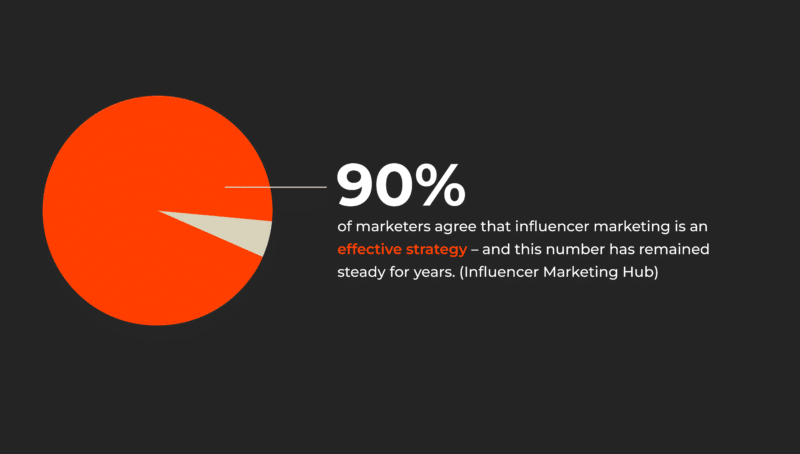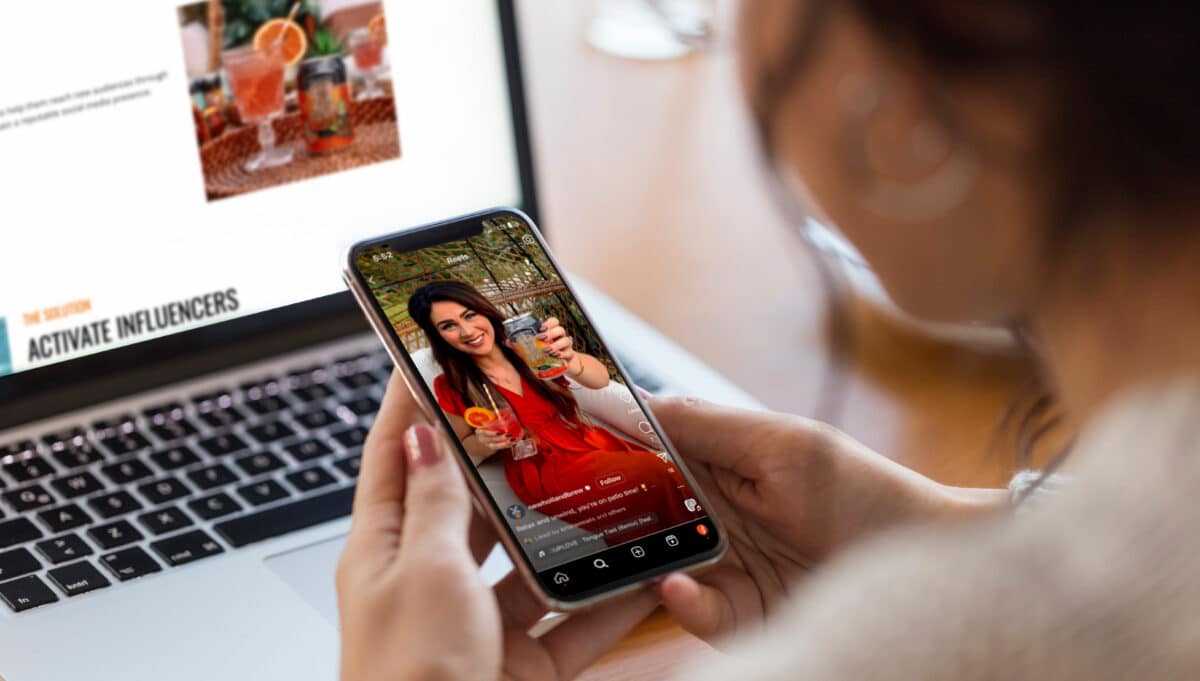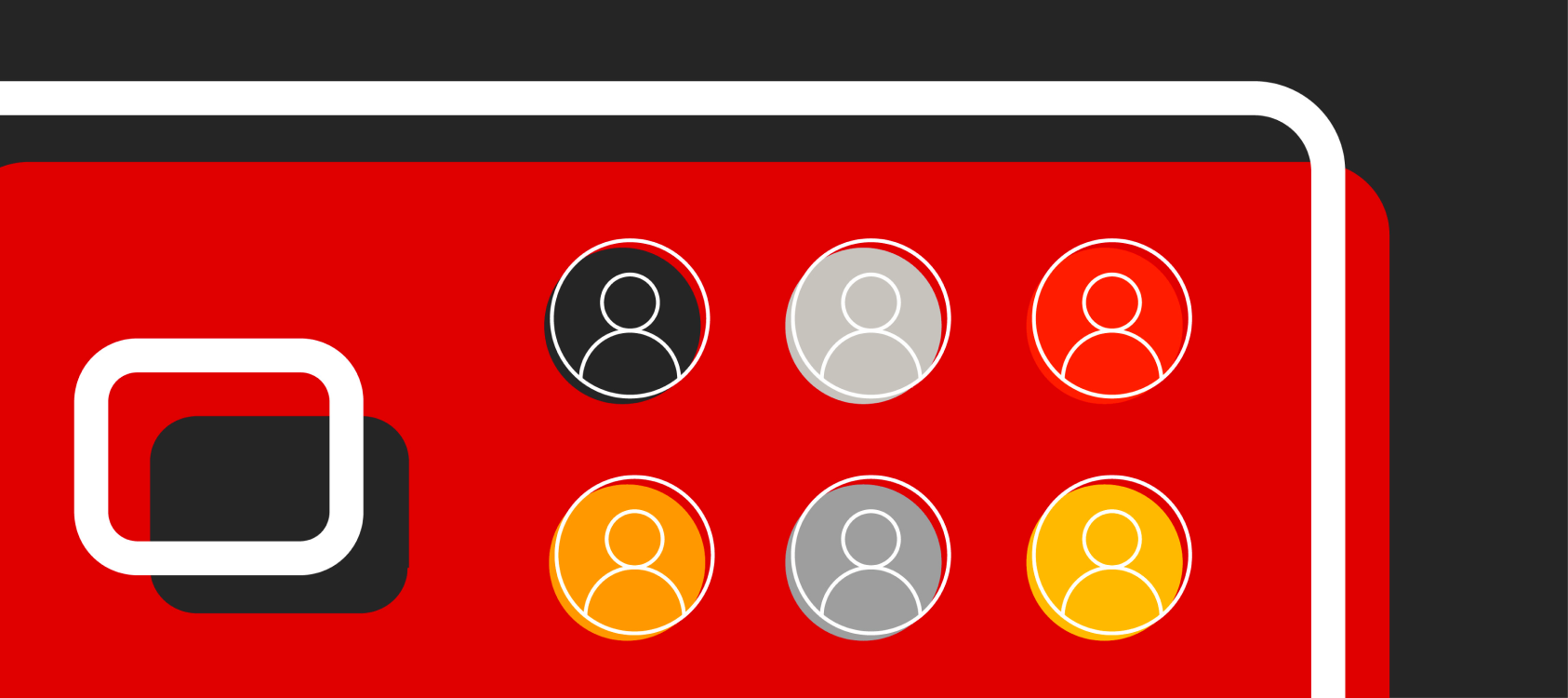It’s impossible to scroll through a social media platform’s feed without seeing charismatic internet personalities showing off products and PR packages. Some marketers look at these influencers with cynicism, assuming things like, “My niche audience can’t relate to people like them.”
However, according to Influencer Marketing Hub, 90% of marketers agree: Influencer marketing is an immensely effective marketing trend, and this strategic tactic isn’t going anywhere. As the number of social influencers grows, so too does their range of specialties and interests, making it more likely than ever for your company to find its perfect influencer match.

Let’s dive into the minutiae of the influencer marketing world, starting with a quick primer:
What is influencer marketing?
Though early iterations of “influencer marketing” most often involved characters — think the Old Spice Man or Flo from Progressive — this strategy quickly took on a new definition thanks to the rise of social media marketing in the 2010s. Using platforms like Instagram and TikTok, media personalities partnered with brands to show off products and services, breaking the proverbial barrier between fan and celebrity by speaking directly to audiences on their own accounts. In the eyes of consumers, this bolstered brands’ credibility; even as ad disclosures have become more blatant, 50% of millennials (and even more Gen Zers) still trust product recommendations from influencers.
Nowadays, established celebrities aren’t the only influencers on the market. Influencers often rise to prominence on social media itself, leveraging algorithmic insights and creative concepts to craft engaging, viral-ready content intended to attract followers. Once that following grows large enough (though remember, influencers’ follower counts vary), brands begin to take notice. Programs like the Amazon Influencer Program often play a key role in connecting these influencers with brands. Influencer marketing platforms like CreatorIQ and Mavrck can also help influencers get noticed too — and help brands find influencers that speak to their unique niche.
Why use influencer marketing?
There are six key reasons why a brand would want to pursue an influencer collaboration:
- Influencers build audience trust. As the old saying goes, “the most effective form of marketing is word of mouth.” Why? Simple: People trust people, and authenticity inspires trust. Think about it — how many times have you asked a friend or relative for a recommendation on a restaurant, a new type of shampoo, or a babysitter? Influencer marketing mimics that person-to-person connection using social media, making influencer marketing the modern evolution of word-of-mouth marketing. As engagement rates and social sales show, influencers endorse products and services in a way that resonates and builds trust with social audiences.
- Influencers increase brand authenticity. Though developing distinct branding is integral to marketing strategy, especially when it comes to populating your social media channels, seeing your product “in the wild” helps audiences view your products and services more favorably. Younger generations in particular trust influencers to offer objective, honest opinions, bolstering the authenticity of your value proposition and overall brand. Influencers’ “relatable” content proves that your product is the real deal, especially against competitors.
- Influencers establish long-term consideration. Countless case studies show that brands with long-term influencer partnerships become more reputable in the eyes of their audience. When followers notice an influencer continue to partner with the same brand, they’re more likely to trust the product’s efficacy and integrity. Not only can long-term influencer partnerships increase the likelihood that an influencer’s audience sees your product — the more branded content an influencer produces for you, the greater your audience reach becomes! — it also ensures that each audience touch has lasting positive impact.
- Influencers expand social reach. This one may seem like a given, but hear us out: Carefully choosing influencer partnerships based on audience insights can expand your social reach in a meaningful way. In essence, by leveraging an influencer’s following, you’re getting your products in front of a ready-made segment that fits your personas’ criteria. Intentionally vetting influencers is key to reaping this benefit — and we can help you there.
- Influencers optimize audience targeting. Partnering with a brand-aligned influencer can save your marketing department internal hours usually spent doing robust audience segmentation. In a sense, influencers can take the guesswork out of targeting and retargeting your ideal audience; they’ve already hit the “follow” button on an account that’s showcasing your content, so there’s no need to track them down.
- Influencers improve SEO. Influencers post user-generated-style content to their own social media channels. However, they’ll often link out to your branded landing pages, social channels, and other sites under your domain to drive traffic with CTAs. Technically speaking, this practice improves your domain authority by increasing the number of backlinks leading to your website, making your marketing department look great in front of your digital team.

You’ve convinced me! How do I start?
You’re in luck! We’ve managed influencer partnerships for brands selling everything from cocktails to cat litter, so you can trust us to point you in the right direction.
Lingering questions? Drop us a line. We’d be happy to help.








